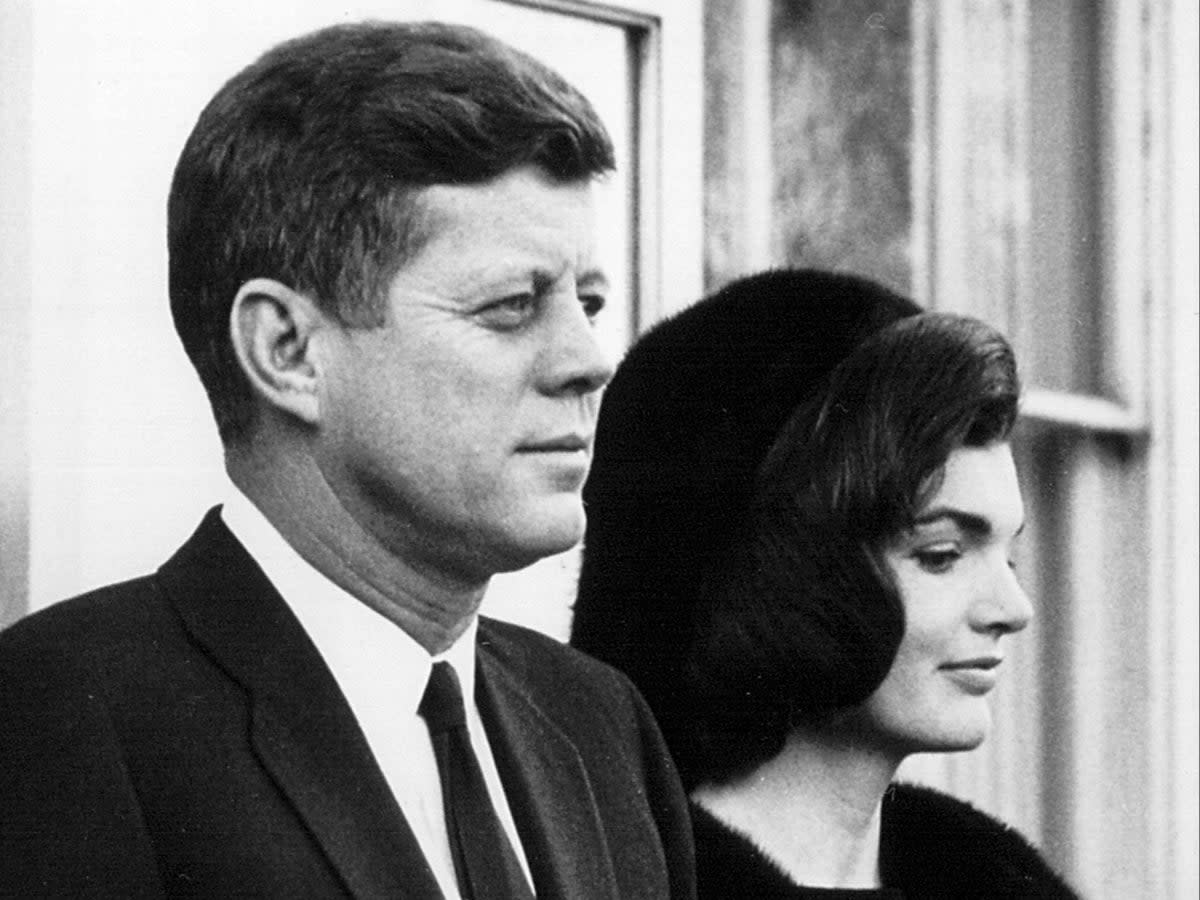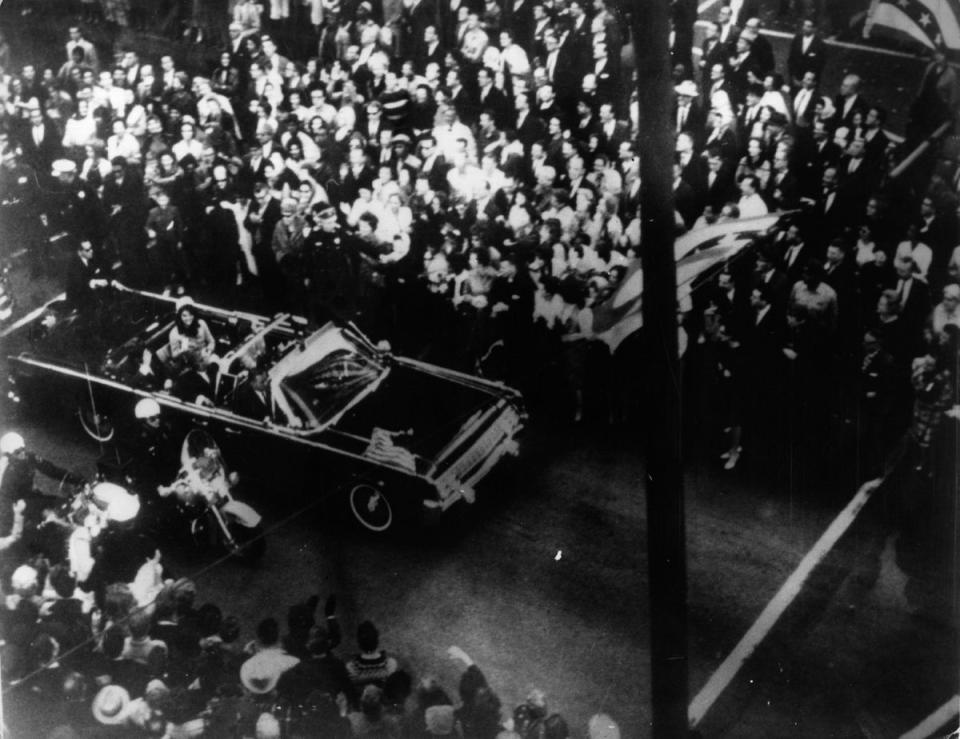JFK files: What might the new records reveal and what conspiracy theories still surround the case?

John F Kennedy, the 35th president of the United States, was shot dead in his open-top limousine as the presidential motorcade passed through Dallas, Texas, on 22 November 1963. The horror that unfolded that winter day at the height of the Cold War, just before Thanksgiving, proved to be one of the defining events of the 20th century.
According to the official narrative, as established by the Warren Commission, former US Marine Lee Harvey Oswald fired the fatal shot from the upper floors of the Texas School Book Depository before being arrested and then murdered himself by local businessman Jack Ruby two days later, with both men ruled to have been acting alone.
Of course, that verdict – and almost every other fine detail relating to the case – has been endlessly picked over and disputed ever since, with the conspiracy theories surrounding the JFK killing still swirling almost 60 years after the event and setting the template for much of the often deranged anti-establishment paranoia that grips the misinformation echo chambers of the internet today.
Even Bob Dylan has weighed in, his most recent album, Rough and Rowdy Ways (2020) concluding with “Murder Most Foul”, a near-17 minute recitation recounting the assassination in intense detail and borrowing its title from Shakespeare to insinuate sinister intrigue.
For Dylan, Kennedy was “shot down like a dog in broad daylight” in what amounted to the “greatest magic trick ever under the sun” because “thousands were watching, no one saw a thing”.
The victim, who realises he has been “led into some kind of a trap”, is taunted by his killers (note the plural):
“You got unpaid debts, we’ve come to collect,
“We’re gonna kill you with hatred, without any respect,
“We’ll mock you and shock you and we’ll put it in your face,
“We’ve already got someone here to take your place.”
JFK was erased as a man and as an idea, the singer argues, because, “They killed him once and they killed him twice/Killed him like a human sacrifice”, observing that the ensuing counterculture revolution of the 1960s, soundtracked by The Beatles and many others, including Dylan himself, played out like a carefully-orchestrated distraction.
Now the affair will once more return to the headlines after Kennedy’s 11th successor, Joe Biden, ordered the release of 12,789 previously-undisclosed documents by the National Archives and Records Administration under the 1992 President John F Kennedy Assassination Records Collection Act.
That law states that “all government records concerning the assassination of President John F Kennedy... should be eventually disclosed to enable the public to become fully informed about the history surrounding the assassination”.
Experts and amateurs alike will spend weeks and months poring over the files – another 4,000 or so are still being withheld until at least June 2023 on national security grounds – but researchers have so far said they do not expect the documents to contain any evidence that will definitely support the popular belief that Oswald did not act alone.
“It’s not going to change the story,” Larry Sabato, author of The Kennedy Half Century: The Presidency, Assassination and Lasting Legacy of John F Kennedy, told CNN.
“The truth is not that Oswald was part of a conspiracy to kill Kennedy,” he continued.
“The truth is that this assassination was preventable and could have been prevented and should have been prevented if the CIA and FBI were doing their jobs. Really, that’s it. Now that’s serious, but you’re not going to find the names of other conspirators in here.”
Many will disagree with Sabato’s conclusion, not least Dr Cyril Wecht, a 91-year-old forensic pathologist who has studied the murder for almost six decades, advised Oliver Stone on his 1991 film JFK and argued in his latest book earlier this year – The JFK Assassination Dissected – that Oswald had acted under orders from Allen Dulles, CIA director from 1953 to 1961.
Dr Wecht claims that Dulles, who was dismissed by Kennedy after he had overseen the disastrous Bay of Pigs invasion of Cuba, was so resentful over that episode that he groomed Oswald, a former marksman with the Marines who had recently returned from the USSR with a Russian bride whose father was a KGB agent, to execute his enemy.
Dulles would later be appointed to the Warren Commission investigating JFK’s death, a development that, Dr Wecht told The New York Post, “stinks to high heaven”.
Dr Wecht was the first non-governmental forensic pathologist to be granted access to the US National Archives’ materials on the JFK killing in 1972 and, as a result of what he found there, alleges malpractice surrounding the autopsy on the president’s body.
He claims in his recent book that Dallas coroner Dr Earl Rose, based at Parkland Memorial Hospital where Kennedy was initially taken for treatment, was physically intimidated by Secret Service personnel, who prevented him from examining the commander-in-chief’s injuries before his body was flown out to Washington DC.
On visiting the National Archives, the author learned that Kennedy’s brain had been removed – to prevent further scrutiny, he alleges – and remains “unaccounted for”.

Dr Wecht has been at this a long time and famously told the House Select Committee on Assassinations in 1978 that he considered the explanation that Oswald had acted alone not credible due to the differing trajectories of the bullets that struck Kennedy.
He insisted then and does now that a second gunman must have been positioned behind a picket fence on the notorious grassy knoll, telling The Post: “Under the single bullet theory, Oswald is the sole assassin, he’s firing from the sixth-floor window of the Texas School Book Depository building, so the bullet is moving from up, downward, right? So how the hell could it go upward?
“Young people are still being taught that the 35th president was murdered by a lone gunman, and that is simply bulls***.”
A previous tranche of around 2,800 documents was released by the US government in October 2017 and failed to yield a smoking gun to satisfy the likes of Dr Wecht but they did reveal a portrait of an administration in panic, entertaining all possible conspiracy angles itself in the immediate aftermath as it scrambled anxiously for answers.
FBI director J Edgar Hoover is seen ranting about the frantic atmosphere of the moment in one letter, declaring: “There is nothing further on the Oswald case except that he is dead.”
In another, he appears to foresee conspiracy theories fermenting and states: “The thing I am concerned about, and so is [deputy attorney general] Mr Katzenbach, is having something issued so we can convince the public that Oswald is the real assassin.”
In yet another, he reports: “Last night we received a call from our Dallas office from a man talking in a calm voice and saying he was a member of a committee organised to kill Oswald.”
Some of the more salacious revelations from that bundle included notes on an FBI meeting with a group of Cuban exiles who called for (relatively modest) bounties to be placed on the heads of Fidel Castro, Raul Castro and Che Guevara, the bureau’s awareness of a Los Angeles private investigator trying to track down a “high-priced Hollywood call girl” alleged to have attended orgies with Kennedy during his time as a Massachusetts senator (alongside Frank Sinatra, Sammy Davis Jr and Peter Lawford) and agents hearing from an informant who claimed to have proof that Lyndon Johnson had been in the KKK.
There were also plenty of entertaining details about fanciful CIA schemes to assassinate Castro, including via a fungus-contaminated skin diving suit, a “booby-trapped” seashell and a very literal poison pen on the very day that Kennedy was killed.
Among the documents of most interest in the latest release is one that reportedly details an “intercepted” phone call between Oswald and the Soviet embassy in Mexico following his return from Russia and a number of files that relate to a CIA agent named George Joannides.
Joannides served as a liaison to the congressional committee that investigated the assassination in the 1970s but it was only later disclosed that he had also been involved with Cuban exile groups in Miami bent on Castro’s removal at the same time as JFK was assassinated, in which capacity he may have come into contact with Oswald.
The Mary Ferrell Foundation, the largest non-government repository for JFK assassination records, has sued for the release of more documents about Joannides, believing him to be the key that could finally unlock one of the greatest mysteries of them all.

 Yahoo News
Yahoo News 
